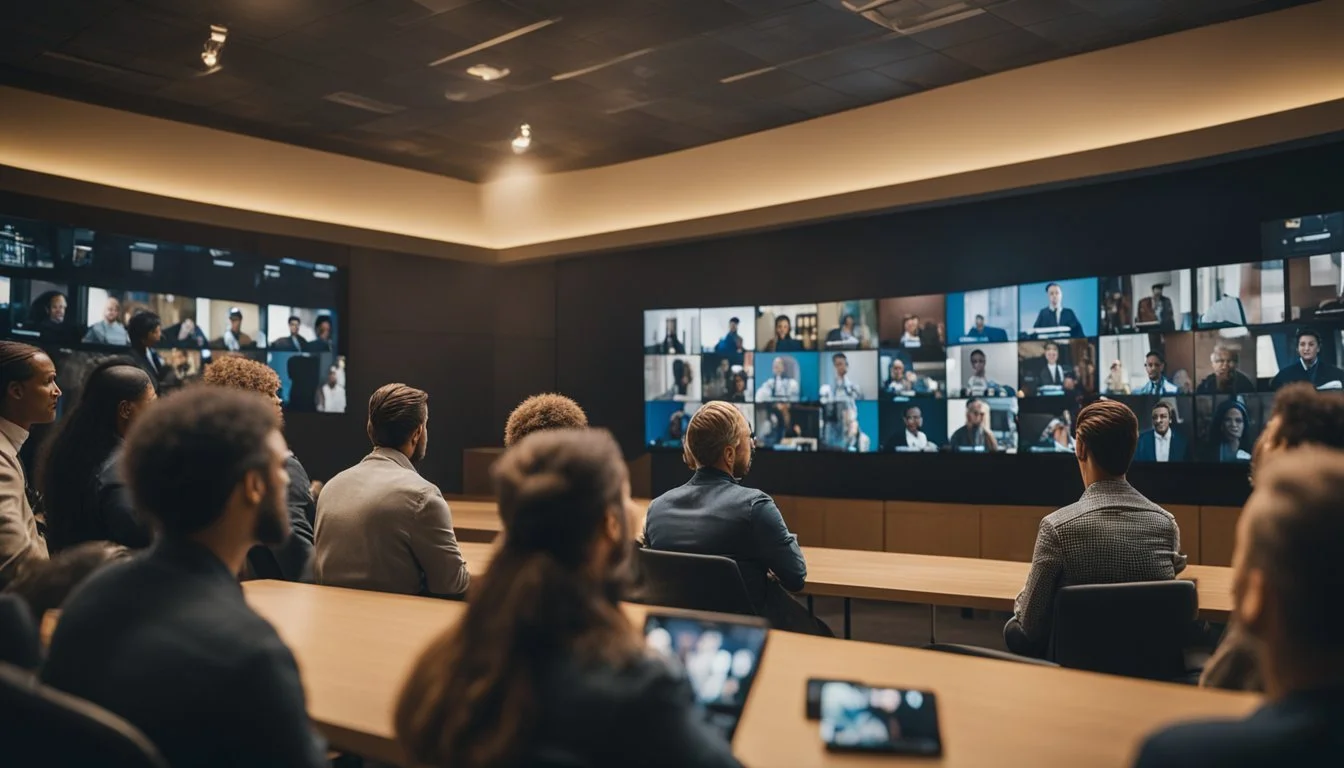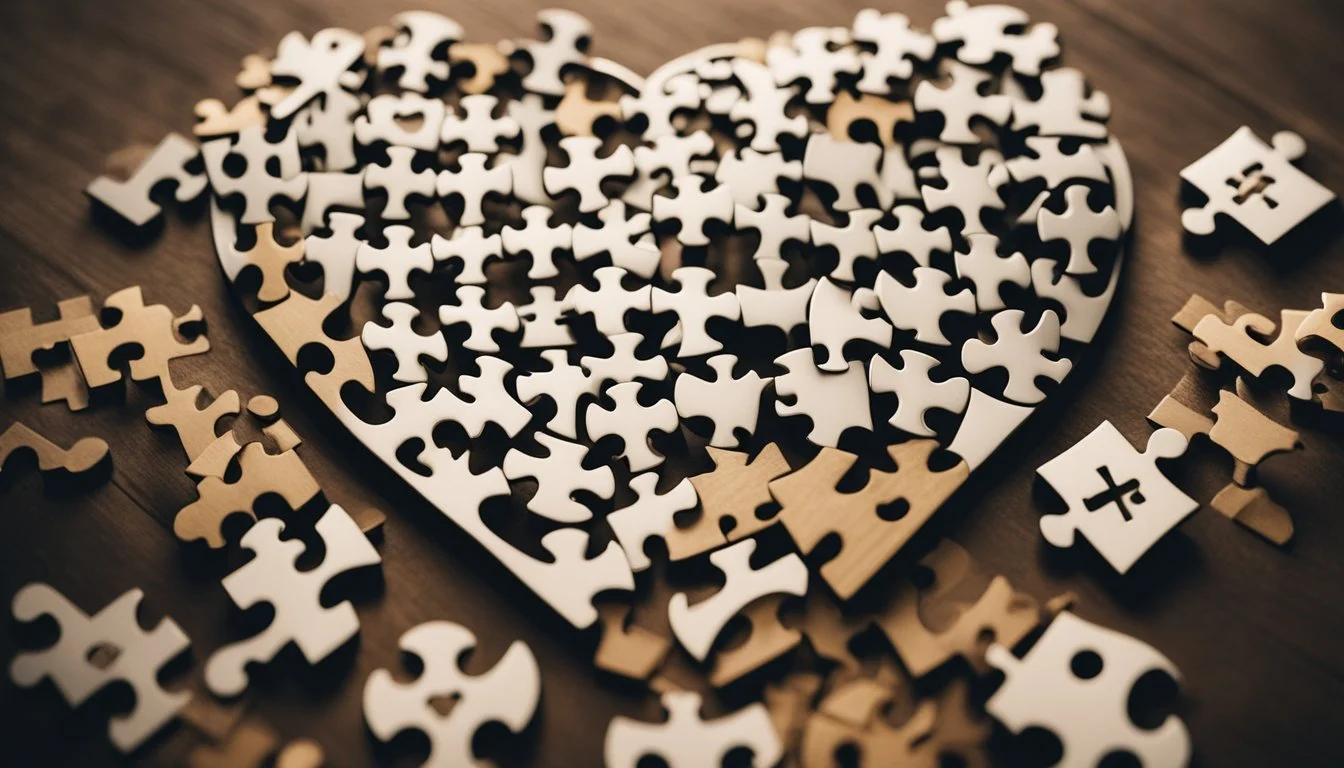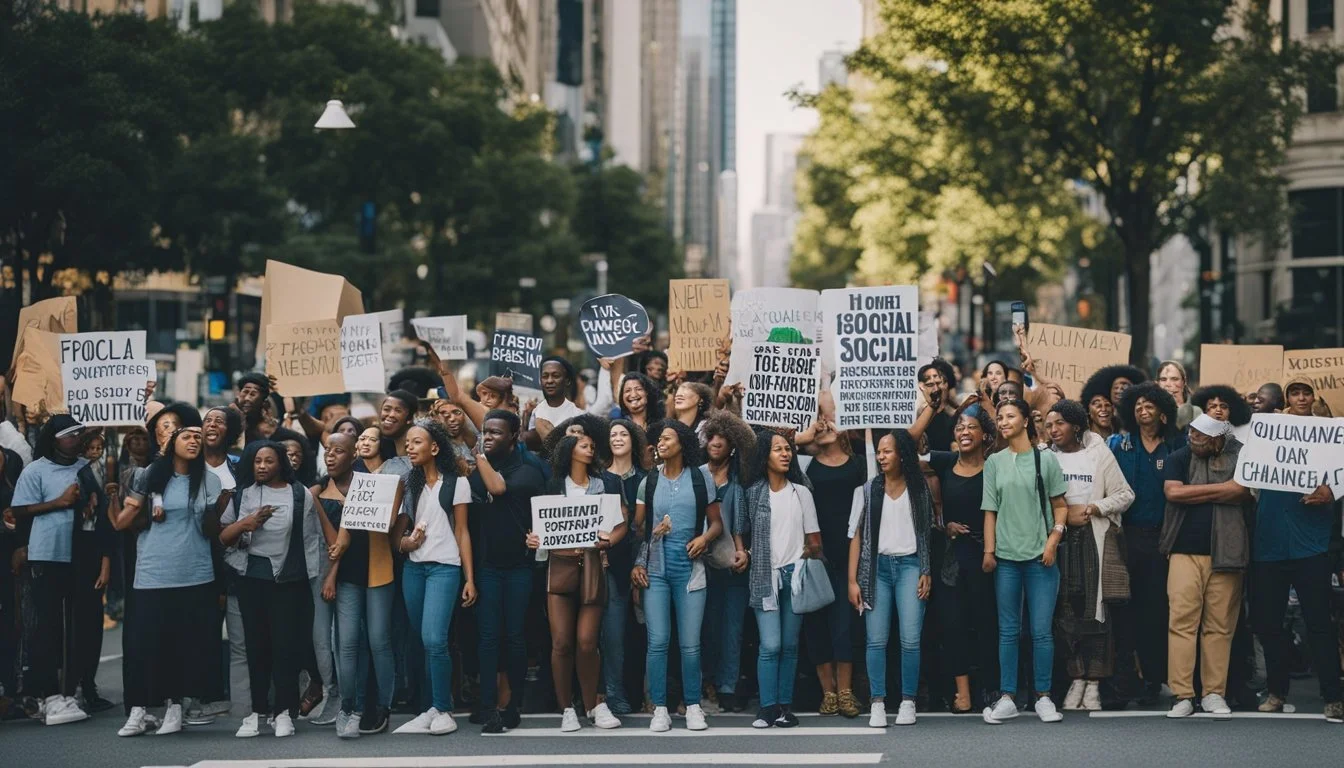5 Documentaries That Investigate the Role of Love in Social Justice
Exploring Compassion's Impact on Activism
Documentaries have long been a powerful medium for exploring social justice issues, shedding light on important topics and inspiring change. In recent years, a subset of these films has emerged that examines the intersection of love and social activism, revealing how compassion and empathy can drive movements for equality and justice.
These documentaries showcase how love can be a transformative force in addressing societal inequalities, challenging systemic oppression, and promoting positive change. By highlighting personal stories and broader social trends, they offer viewers a unique perspective on the role of human connection in advancing social justice causes. Through compelling narratives and thought-provoking insights, these films demonstrate the potential for love to shape a more equitable world.
1) I Am Not Your Negro by Raoul Peck (2016)
"I Am Not Your Negro" is a powerful documentary that explores the history of racism in America through the words of James Baldwin. Directed by Raoul Peck, the film is based on Baldwin's unfinished manuscript "Remember This House."
The documentary uses archival footage and photographs to illustrate Baldwin's insights on race relations. It focuses on Baldwin's memories of civil rights leaders Medgar Evers, Malcolm X, and Martin Luther King Jr.
Narrated by Samuel L. Jackson, the film brings Baldwin's eloquent prose to life. It connects past struggles for equality with contemporary racial issues in the United States.
Peck's skillful direction blends historical material with modern-day footage. This approach highlights the ongoing relevance of Baldwin's observations about American society.
The film received critical acclaim for its thought-provoking examination of race in America. It was nominated for an Academy Award for Best Documentary Feature.
More information on I Am Not Your Negro
2) 13th by Ava DuVernay (2016)
Ava DuVernay's "13th" examines the connection between slavery and the modern American prison system. The documentary takes its name from the 13th Amendment, which abolished slavery except as punishment for a crime.
DuVernay explores how this loophole has been exploited, leading to mass incarceration disproportionately affecting African Americans. The film presents a compelling argument that the criminal justice system perpetuates racial inequality.
Through interviews with experts and historical footage, "13th" traces the evolution of racial oppression from the end of the Civil War to the present day. It highlights how different forms of social control have been used to marginalize Black communities.
The documentary also addresses the impact of the war on drugs and mandatory minimum sentencing on incarceration rates. It challenges viewers to consider how these policies have contributed to systemic racism.
"13th" encourages audiences to reflect on the role of justice and equality in American society. It serves as a powerful call to action for reform in the criminal justice system.
3) The True Cost directed by Andrew Morgan (2015)
The True Cost examines the human and environmental impacts of the fast fashion industry. Director Andrew Morgan takes viewers on a global journey, from glittering runways to impoverished garment factories.
The film highlights the stark contrast between fashion's glamorous image and the harsh realities faced by workers in developing countries. It explores issues like low wages, unsafe working conditions, and environmental degradation.
Morgan interviews fashion influencers, factory workers, and activists to present a comprehensive view of the industry. The documentary challenges consumers to consider the real price of cheap clothing.
The True Cost sheds light on the complex web of global trade, corporate profit, and human rights. It asks viewers to reflect on their own consumption habits and their effects on others around the world.
More information on The True Cost
4) Won't You Be My Neighbor? by Morgan Neville (2018)
Morgan Neville's documentary explores the life and impact of Fred Rogers, creator and host of the beloved children's TV show "Mister Rogers' Neighborhood." The film examines Rogers' philosophy of radical kindness and its relevance to social justice.
Through archival footage and interviews, Neville showcases Rogers' commitment to addressing complex issues like racism, disability, and death in ways children could understand. The documentary highlights how Rogers used his platform to promote empathy and inclusivity.
A key moment features Rogers testifying before the U.S. Senate to defend public television funding. His sincere appeal demonstrates the power of gentleness in effecting change.
The film portrays Rogers as a quiet revolutionary who believed love could transform society. It reveals how his emphasis on every child's inherent worth challenged societal prejudices and promoted equality.
"Won't You Be My Neighbor?" illustrates how Rogers' messages of unconditional acceptance and the importance of emotional intelligence contribute to social justice by fostering a more compassionate world.
5) The Secret Life of Words (2005)
"The Secret Life of Words" is a drama film directed by Isabel Coixet. It stars Sarah Polley as Hanna, a hearing-impaired woman who takes a job as a nurse on an oil rig.
Hanna cares for Josef, played by Tim Robbins, who suffered severe burns in an accident. As they spend time together, they slowly reveal their traumatic pasts to each other.
The film explores themes of isolation, trauma, and the healing power of human connection. Coixet's direction creates a quiet, introspective atmosphere that allows the characters' emotions to unfold.
Sarah Polley delivers a nuanced performance as the reserved Hanna. Her portrayal earned praise from critics for its depth and subtlety.
"The Secret Life of Words" received several accolades, including four Goya Awards. It was recognized for its sensitive handling of difficult subject matter and its exploration of the transformative nature of empathy.
The Connection Between Love and Social Justice
Love and social justice are deeply intertwined concepts that have shaped societal progress throughout history. Activists and movements have harnessed the power of compassion to drive change and fight inequality.
Historical Perspectives
The civil rights movement of the 1960s exemplified love as a force for social justice. Dr. Martin Luther King Jr. emphasized "agape" - selfless, unconditional love - as central to nonviolent resistance. This philosophy inspired activists to face hatred with compassion.
The women's suffrage movement also drew strength from love. Suffragettes like Susan B. Anthony framed their fight for equality as an act of love for future generations. Their dedication stemmed from a deep care for societal progress.
In India, Mahatma Gandhi's concept of "satyagraha" linked love with nonviolent resistance. He believed that love for opponents could spark moral transformation and social change.
Modern Movements
Contemporary social justice efforts continue to embrace love as a catalyst for change. The Black Lives Matter movement emphasizes love and empathy in its pursuit of racial equality. Activists promote understanding across communities to combat systemic racism.
LGBTQ+ rights campaigns often use the slogan "love is love" to advocate for acceptance and equal treatment. This simple phrase encapsulates the movement's core belief in the universality of love.
Environmental justice movements frame their work as an act of love for the planet and future generations. Activists like Greta Thunberg speak passionately about caring for the Earth and its inhabitants.
Human rights organizations increasingly recognize the role of empathy in their work. They emphasize the importance of seeing the humanity in all people, regardless of background or circumstances.
Impact of Love in Activism
Love plays a powerful role in social justice movements, inspiring activists to create positive change. It fuels community initiatives and motivates individuals to fight for equality and human rights.
Inspiring Community Initiatives
Love-driven activism often leads to impactful community projects. Grassroots organizations form to address local issues, bringing people together for a common cause. These initiatives can range from food banks to educational programs, all aimed at improving lives.
Documentaries like "All About Love" explore how love influences social justice. They highlight activists who channel their passion into tangible action, creating support networks and advocating for policy changes.
Love in activism also fosters resilience. When faced with opposition, activists draw strength from their compassion for others. This emotional foundation helps sustain long-term efforts for societal change.
Documentaries showcase how love-based activism crosses cultural and religious boundaries. Interfaith coalitions form, uniting diverse groups under shared values of empathy and justice.
Challenges in Documenting Love and Justice
Filmmakers face several hurdles when creating documentaries about love and social justice. Capturing genuine moments of compassion amidst conflict can be difficult, as tensions often run high during protests or legal proceedings.
Balancing emotional impact with factual accuracy presents another challenge. Directors must weigh the power of personal stories against the need for objective reporting on complex issues.
Access to key subjects can prove problematic. Some individuals may be reluctant to share their experiences on camera, fearing repercussions or reliving trauma.
Funding constraints can limit production quality and reach. Social justice documentaries often tackle controversial topics, making it harder to secure financial backing or distribution deals.
Ethical considerations arise when portraying vulnerable communities. Filmmakers must navigate issues of consent, representation, and potential exploitation of subjects.
Technical limitations can hinder storytelling. Capturing spontaneous acts of love or solidarity may require specialized equipment or extended filming periods, straining budgets and timelines.
Audience engagement poses a unique challenge. While social justice issues are important, viewers may find heavy topics emotionally draining, necessitating creative approaches to maintain interest.





